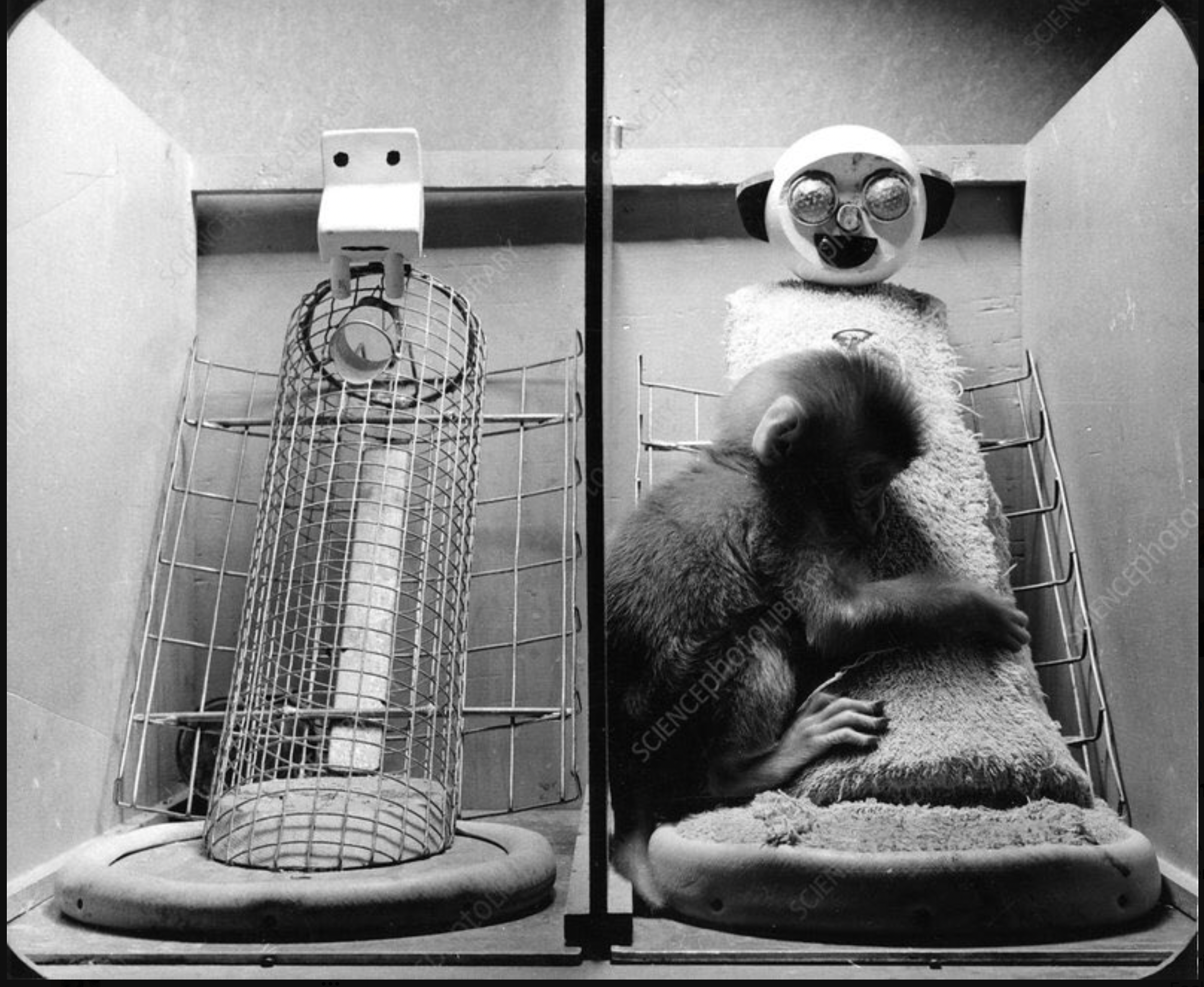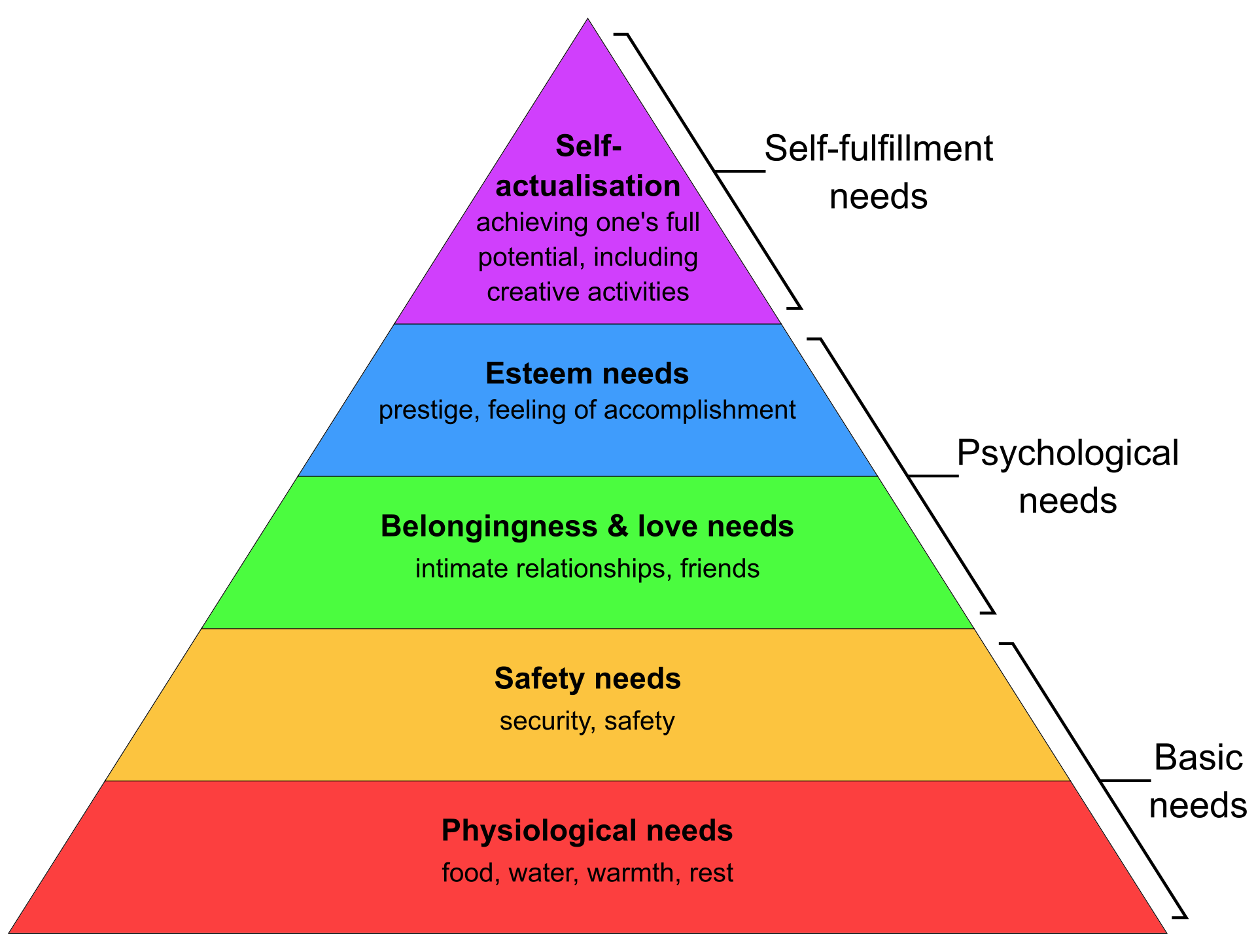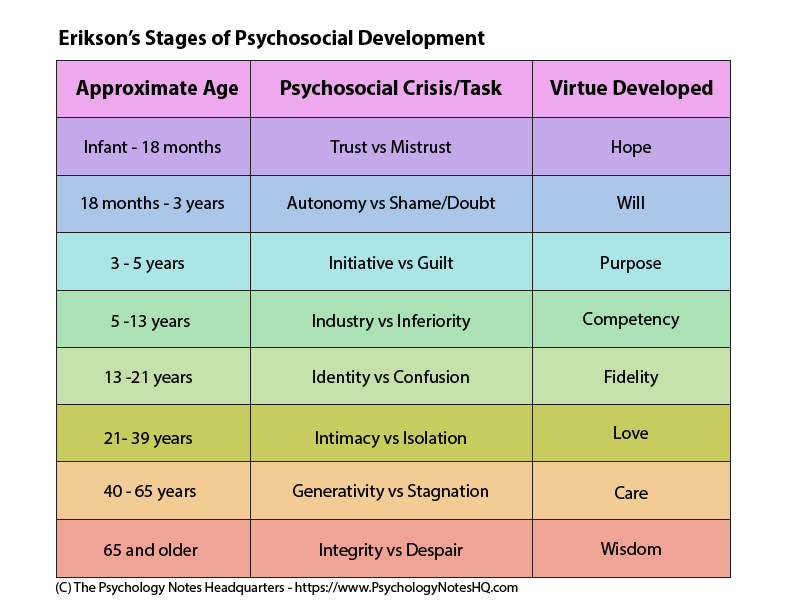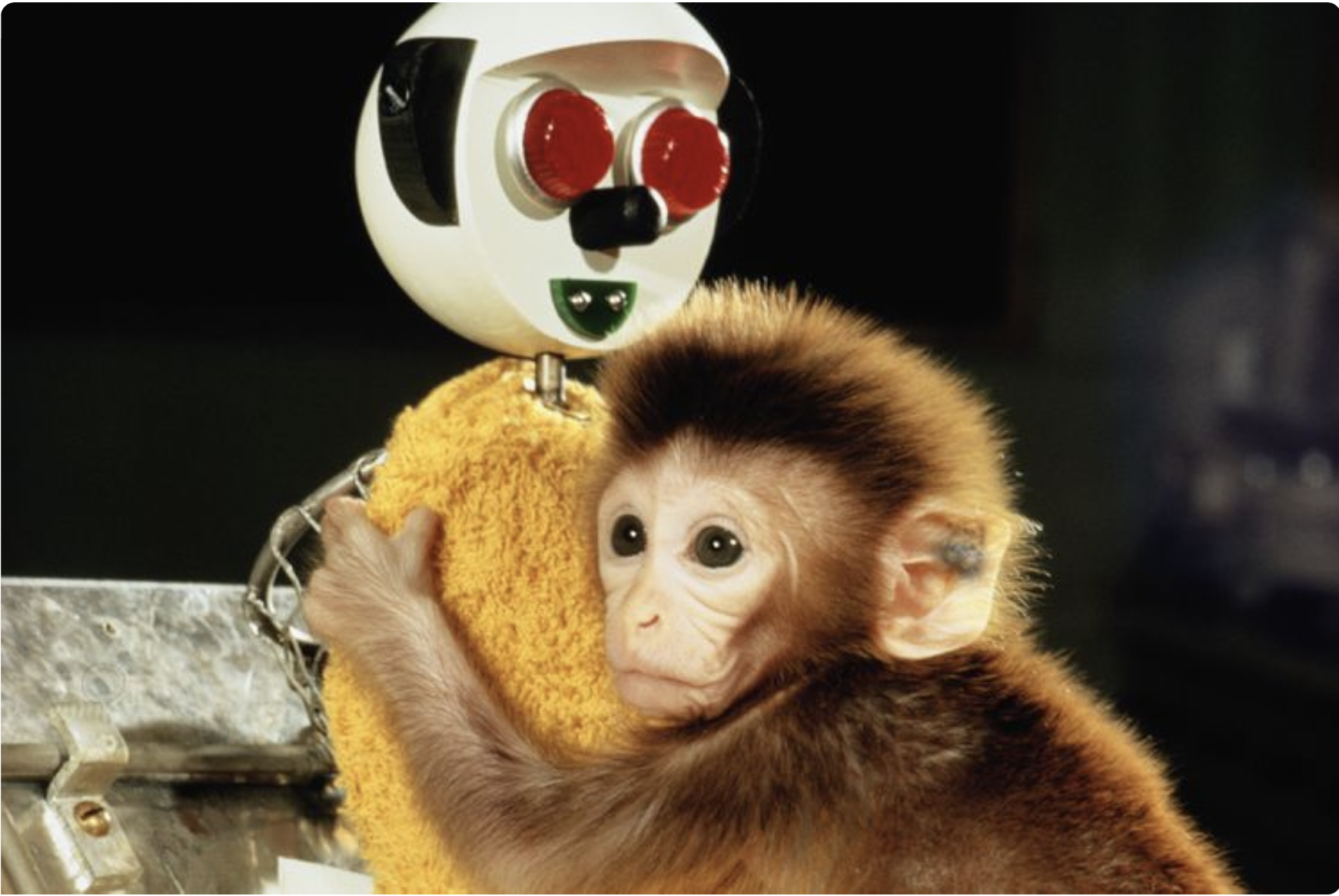My Personal Experience
Not too long ago, I was away from home, working hard and ambitiously on my career, because it felt like it was the right thing to do.
I was always driven for success; I love pushing myself for the end reward.
Long story short, after 6 months, I was isolated, overly anxious, depressed, intensely paranoid ,and on the brink of a serious psychosis.
I flew my ass right back home, and I was worried I would never be the same.
What the hell happened?
Background on Harlow’s Experiments
Behaviorism is a theory of learning based on the idea that all behaviors (actions, rather than cognition, emotions, or mood) are acquired through conditioning, and conditioning occurs through interaction with the environment.
Behaviorists believe that our actions are shaped by environmental stimuli.. This is why choosing one’s environment is vital for growth.
Strict behaviorists believe that any person—regardless of genetic background, personality traits, and internal thoughts— can be trained to perform any task, within the limits of their physical capabilities. It only requires the right conditioning.
An American psychologist named Harry Harlow, however, became interested in studying a topic that was not so easy to quantify and measure—love.
In a series of controversial experiments conducted during the 1960s, Harlow demonstrated the powerful effects of love and in particular, the absence of love.
His work demonstrated the devastating effects of deprivation on young rhesus monkeys. Harlow’s research revealed the importance of a caregiver’s love for healthy childhood development.
When given the choice between two mothers, the infant monkeys went to the wire mother only for food but preferred to spend their time with the soft, comforting cloth mother when they were not eating.
Based on these findings, Harry Harlow concluded that affection was the primary force behind the need for closeness
Later research demonstrated that young monkeys would also turn to their cloth surrogate mother for comfort and security. Such work revealed that affectionate bonds were critical for development.
Monkeys who were with their cloth mother would use her as a secure base to explore the room. When the surrogate mothers were removed from the room, the effects were dramatic. The young monkeys no longer had their secure base for exploration and would often freeze up, crouch, rock, scream, and cry.
Sadly, after the terminal illness of his wife, Harlow became engulfed by alcohol misuse and depression, eventually becoming estranged from his own children. Colleagues frequently described him as sarcastic, mean-spirited, misanthropic, chauvinistic, and cruel.
While Harlow’s experiments do not directly challenge the idea of Maslow’s hierarchy of needs, they do suggest that social needs such as attachment and affection may be more fundamental to well-being than previously thought.
Harlow’s experiments also seem to support the importance of strong social connections from the Blue Zones. We see time after time, it’s not the diet that helps us, nor the fancy exercises we use, but the people whom we spend time with, that greatly impact the quality of our life.

Personal Reflection
For a long time, I also held the idea that it was success at all costs.
While I may have obtained a high GPA in high school to become salutatorian, what did it cost?
I didn’t explore as much, I didn’t have many close friends, and I thought that at the end of it all, I would have it all (friends, validation, love, respect).
It turns out, no one really cares.
People love talking about “making it”, or “being at the top”–but their words don’t match their actions; they end up being with the same people they were as always.
It seems like having people matters far more than having material success.
So the question I have now is one of value: How can I become a valuable friend? The type that people want to invite to parties, hangouts, and fun events? The type of person that people can trust?
How can I do this without being clingy?
First, start by changing your language: I am NEEDED not needy
Second, realize that you can be your own source of emotional and social needs.
Emotional needs come from needing to feel heard–this can be accomplished by simply journaling every day–independent of whether it was an ordinary day, or an exhilarating day.
Social needs come from simply interacting with people. Go where you are needed, and where you can help people on a small scale. Go volunteer at a nursing home, or a soup kitchen.
I think fun social hobbies that you can bring to a group will also help. Things like comedy shows, salsa dancing, or even
Always remember that the value you bring to a group will depend on the specific group’s needs–not all groups of people value the same thing.
I think being honest is a great start; because from there I will gather honest results. If you have a group of chilled-and-laid-back people, you may benefit from helping them automate things for them so that they can have more time to chill.
If you’re with a group of deal makers, being the person who can source the deals will bring value.
If you’re with a group of type-A personality types, you can be the one to bring the humor.
So, if the value you provide depends on the group you are with, then it makes sense to (1) be part of a group (2) observe and listen to what they need (3) fill that vacuum to provide value


Harry Harlow, Abraham Maslow, and Erik Erikson all appear to have covered the idea of intimacy as a core virtue in life.
Why, then, is it so surpring for us to realize how valuable people are in our lives? All this evidence points to the same conclusion: We are social creates who thrive on intimate connections.
You’re not weird for desiring human connection and intimacy; you are human.
It’s no wonder why lonely people feel hopeless. Can we really blame them for being human?
How can I pragmatically apply this to my life?
3 key simple and pragmatic habits I can develop today:
- Improve my relationship with my family. Specifically:
- Being present and curious–asking what each member is up to and REMEMBERING what interests them
- Staying positive when my family. If I love my family, then I must reframe from viewing them as a pest that interfere with my work. I work for my family, and my family feeds my ambition. Without my family, there is little reason to work.
- Embracing the small, “mundane”, xx WITH ENTHUSIASM, because they make up 80% of the interactions
- ENTHUSIASM, ENTHUSIASM, ENTHUSIASM. Action preceds inspiration
- Be silly, because they are silly, and this is great
- Start making friends
- Be someone who can provide value to a group
- Invite people for gatherings and trips, even if it’s casual–it does not have to be a fancy party, but a casual meetup
- Start Dating
- With the intention of finding a partner who desires a family.
- Be empathetic towards young adults, or anyone really. Life for them must be hard without anyone to love
- Remember that the real treasures of life are the intangible assets:
- Our mind
- Out body
- Our love of friends, family, and community
- Our hopes and dreams
